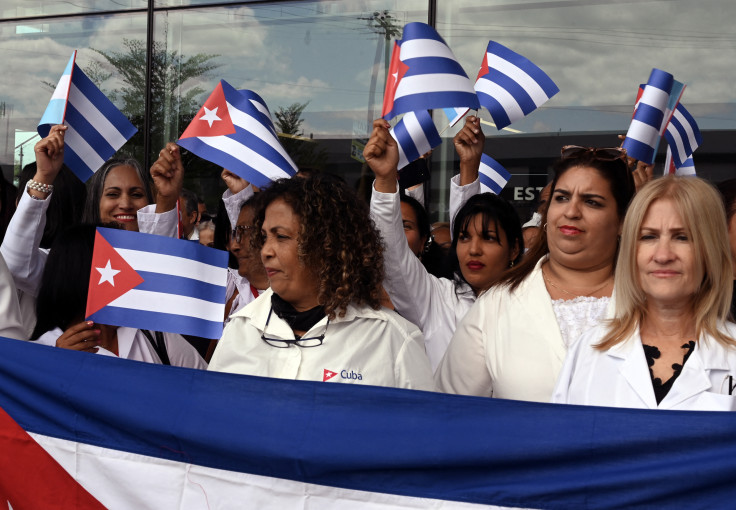
Tensions between the U.S. and Cuba are rising to the forefront of the foreign politics conversation once more. Days ago, The Foundation for Human Rights in Cuba compiled a database of over 1,000 former regime members that are seeking to enter the U.S. (which include former high-ranking officials in the Communist Party), prompting Cuban exiles in Florida to express that such actions would pose a "national security" threat.
Now, a group in the House of Representatives has decided to go after Cuba's medical brigade program, which, on paper, exports medical services at cheap rates to places otherwise underserved or entirely lacking medical services. U.S. officials proposing the resolution, however, accuse the program of profiting from forced labor, with Cuban doctors receiving only a small fraction of the fees charged by Cuba to the host countries.
As a result, the commission, composed of members from both major parties in the U.S., is urging the federal government to revoke U.S. visas granted to foreign officials who have employed Cuban medical brigades and to take further measures against the regime, as House Homeland Security Committee Chair Mark Green expressed to The Hill:
"Our resolution is a call on Congress to condemn the regime's human trafficking of medical personnel around the world and hold the Pan-American Health Organization (PAHO) accountable for using millions of U.S. taxpayer dollars to further this human trafficking operation."
In June, the U.S. Department of State released its 2024 Trafficking in Persons (TIP) Report, which highlighted payments from 74 countries to Cuba for medical services. The reports, however, did not identify specific foreign officials involved, citing the complexity of payment schemes across different countries. The latest resolution specifically targets officials from countries such as Brazil, Mexico, and Honduras. As the report reads:
"The (Cuban) government continued to deploy government-affiliated Cuban workers to foreign countries using deceptive and coercive tactics. In the majority of cases, the government kept a significant amount of workers' wages; confiscated workers' passports and professional credentials; subjected workers to surveillance and strict curfews; and did not consistently inform participants of the terms of their contracts, which varied from country to country."
Cuban officials have defended the program, arguing that it provides essential health services to vulnerable communities. They assert that attempts to undermine the program are politically motivated and detrimental to the healthcare needs of those served by the brigades.
© 2025 Latin Times. All rights reserved. Do not reproduce without permission.





